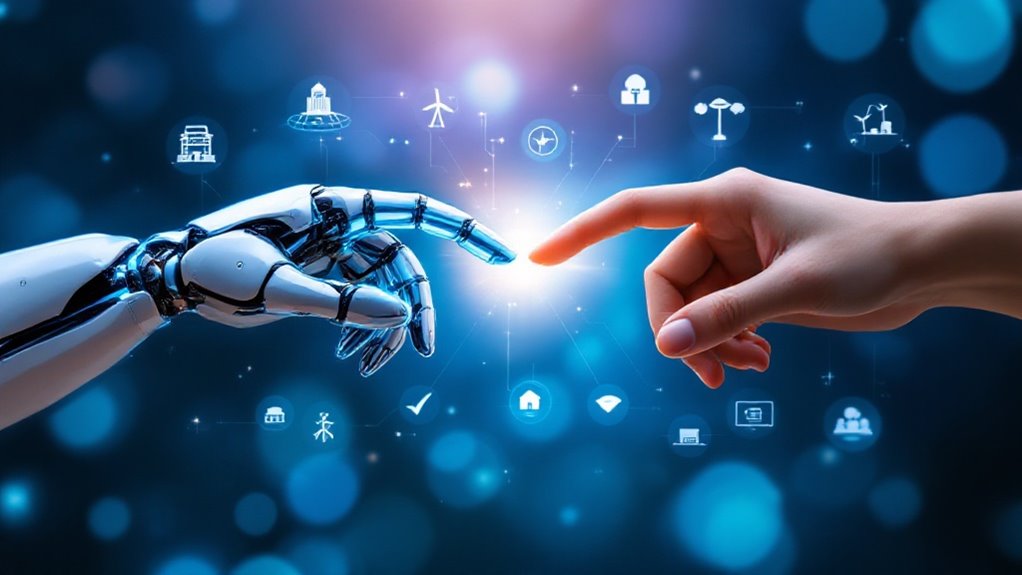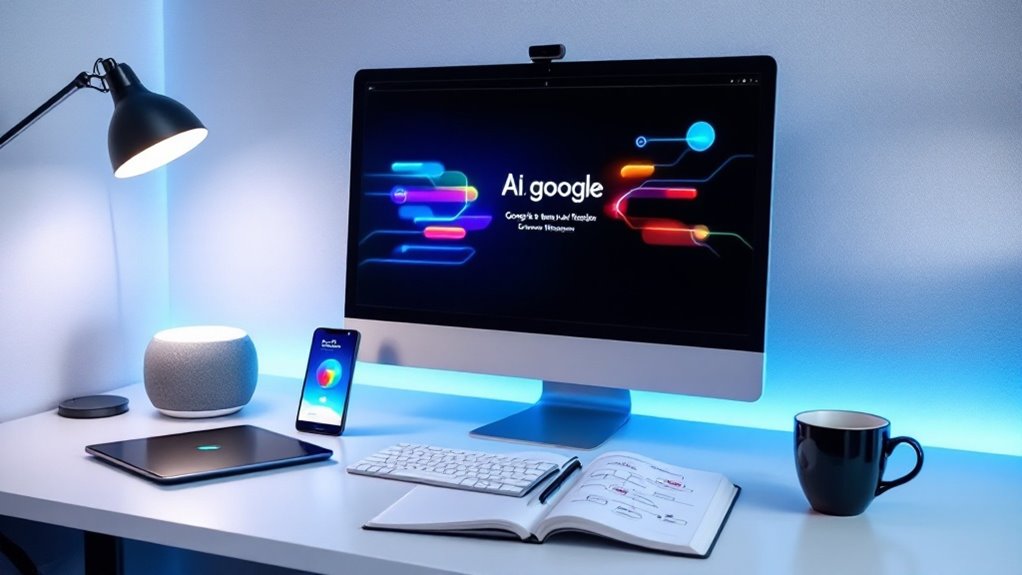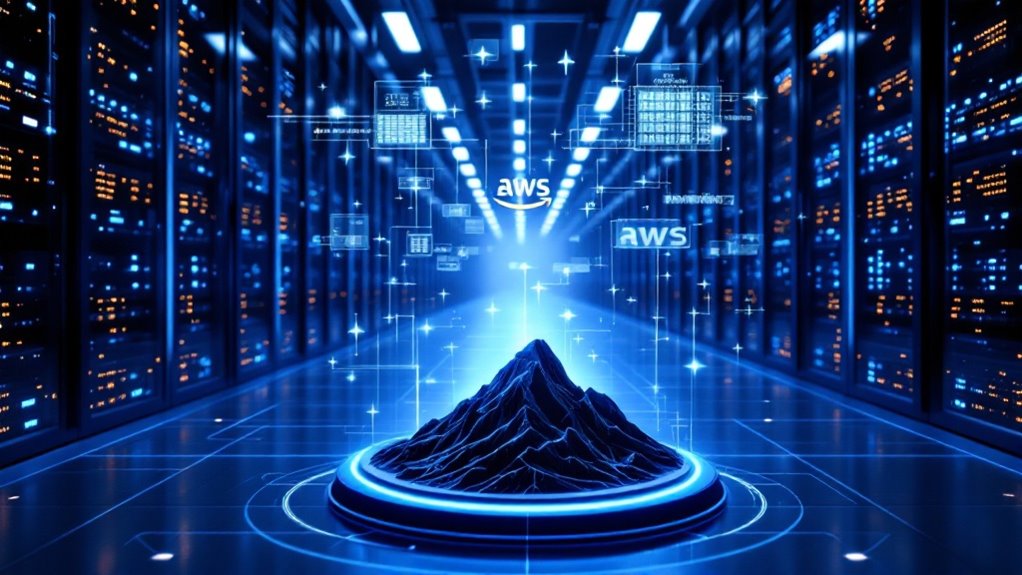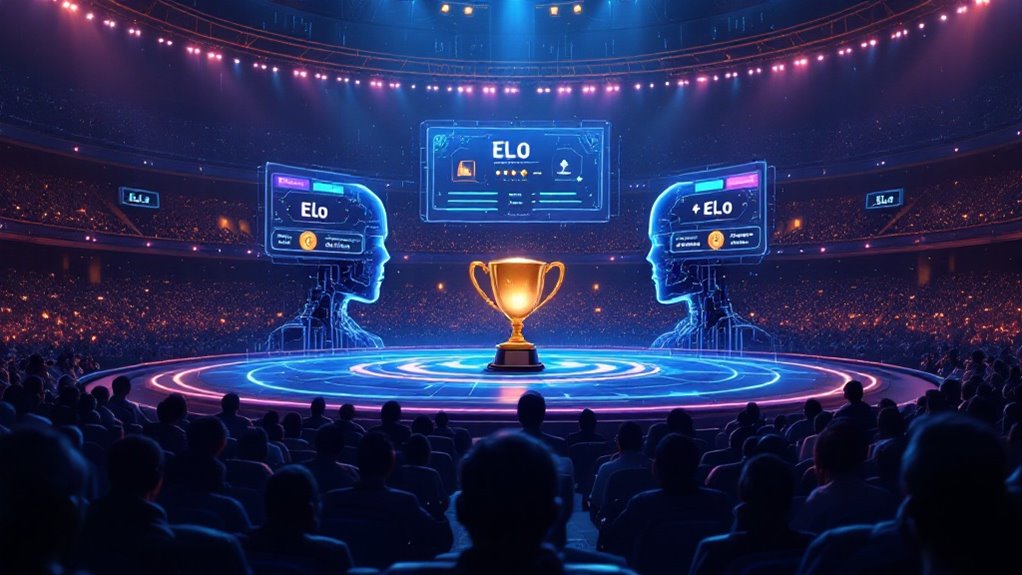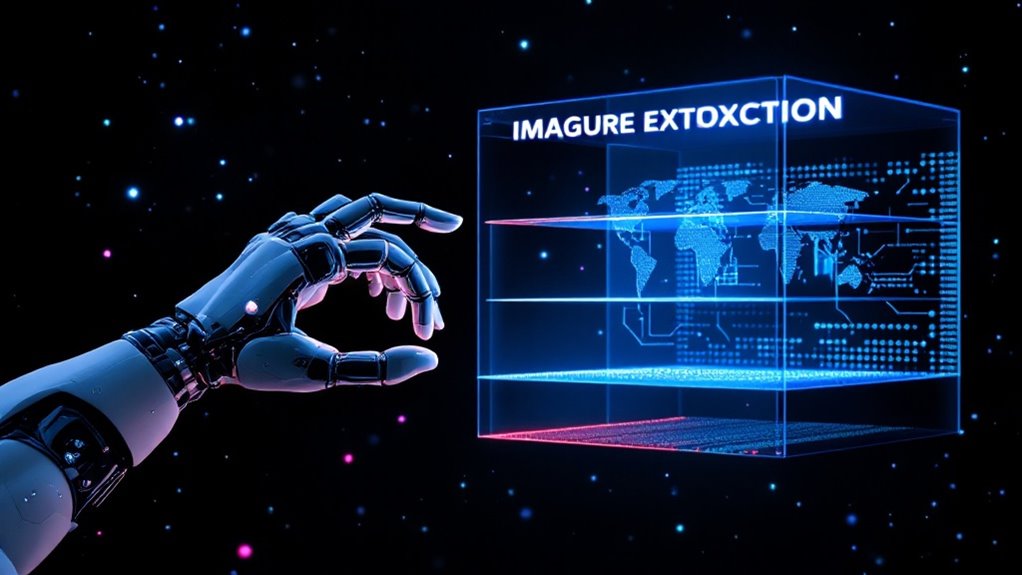AI currently benefits society through numerous channels. It’s creating millions of new jobs, powering your smartphone without you even realizing it (sneaky, right?), and could potentially reduce bias in healthcare and hiring. From diagnosing diseases to optimizing supply chains, AI handles routine tasks while humans get the fun stuff. Despite mixed public feelings—half optimistic, half concerned—AI’s $15.7 trillion economic boost by 2030 is nothing to sneeze at. The revolution’s already here, folks.
While experts debate the finer points of artificial intelligence, one thing is crystal clear: AI has firmly planted its digital footprints across virtually every aspect of modern life. From the smartphone buzzing in your pocket to the recommendations in your streaming queue, AI is quietly running the show. And it’s a blockbuster—projected to add a staggering $15.7 trillion to the global economy by 2030.
Remember when we feared the robot apocalypse? Turns out, AI is actually creating more jobs than it’s stealing. By 2025, while 85 million positions may vanish, AI will help generate 97 million new ones. That’s 12 million net new jobs for us humans. Not too shabby for our silicon-based overlords.
Forget robot overlords—AI’s creating 12 million more jobs than it’s killing. Apocalypse postponed.
More than half of Americans use AI regularly, though many don’t even realize it. (Yes, asking Siri about the weather counts, Karen.) This technological blind spot is fascinating—77% of consumers use AI-powered devices, yet only a third acknowledge it. We’re in a committed relationship with AI and don’t even know it. In fact, only 30% of U.S. adults can actually recognize all six examples of AI in their everyday lives.
Perhaps most surprising is AI’s potential to make society more equitable. When asked about racial bias in healthcare, 51% of Americans believe AI will improve the situation rather than worsen it. Similarly, 53% think AI could reduce hiring discrimination. Turns out, algorithms might be less prejudiced than their human creators—who knew?
Across industries, AI is transforming how work gets done. From diagnosing diseases to optimizing supply chains, 9 out of 10 leading businesses are investing in AI to maintain their competitive edge. It’s no longer optional; it’s table stakes. Current AI systems already outperform humans in various language and image recognition tests, with continual improvements observed over the past two decades. In workplace settings, AI is revolutionizing productivity by handling routine tasks so employees can focus on more complex, creative work.
Public sentiment remains mixed, though. About half of consumers express optimism about AI’s societal impact, while 52% admit to being more concerned than excited. Fair enough—any technology powerful enough to revolutionize entire industries deserves a healthy dose of skepticism.
The AI revolution isn’t coming—it’s already here, quietly reshaping our world while we’re busy asking Alexa to play “Mr. Roboto” one more time.
